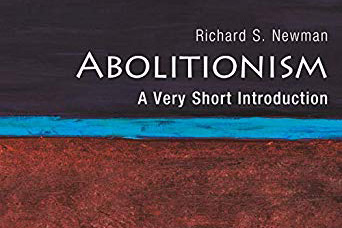Professor tells abolitionist story in ‘Very Short’ book
Anti-slavery struggles were the inspiration for today’s social justice movements
From the Underground Railroad and legal aid for oppressed people to legislative lobbying and military service, a new book, written by Rochester Institute of Technology History Professor Richard Newman, Abolitionism: A Very Short Introduction, talks about the importance of anti-slavery struggles in the United States during the 18th and 19th centuries.
The 176-page book is part of Oxford University Press’s “Very Short Introduction” series, which has sold millions of copies around the world.
“This series is aimed at creating succinct, readable books on key topics for general readers as well as specialists,” Newman said. “Even though this is a short book, I wanted to show that the struggle against racial injustice was a long process and continued well after the Civil War. I also wanted to show that Rochester’s own Frederick Douglass played a key role in the movement before, during and after the Civil War.”
The book is filled with portraits of notable abolitionists, including William Lloyd Garrison, Anthony Benezet, Richard Allen and Angelina Grimké, and highlights their focus on social and political action. They employed every conceivable means to attack slavery and racial injustice and helped bring down slavery, the most profitable institution in the American society at the time.
They also inspired generations of reformers, right down to the present.
“The book shows that abolition was the first major social movement in American and global society and that it has influenced almost every reform struggle since the 19th century, including movements in our time such as #MeToo, Black Lives Matter and anti-sex trafficking,” Newman said.
He first thought about writing this book after hosting a National Endowment for the Humanities Summer Seminar on abolition for high school teachers in 2006 in Philadelphia.
The book is available at most book stores and through Amazon.com.














